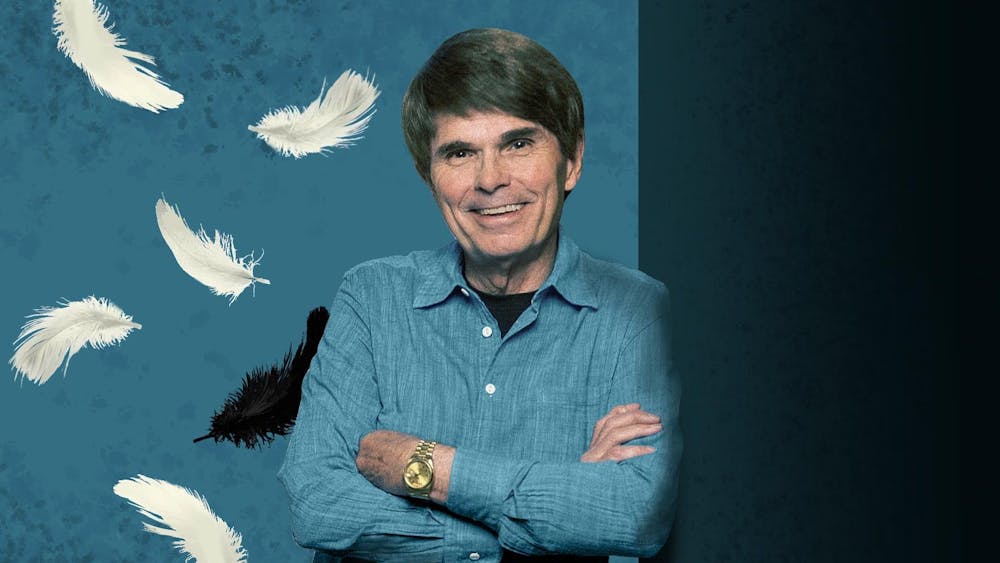
Sometime around 2010, a scrawny, self-conscious teenager began uploading self-produced music to the bleakest abysses of Bandcamp. The project, a nod to its creators' favorite spot to record vocals, took shape under the name Car Seat Headrest.
The origin of the now Seattle-based band is a familiar story, one intrinsic to the fabric of Bandcamp’s expansive network of DIY music. Throughout 10 albums worth of material, Virginia native and occasional drug user Will Toledo's DIY project was just another unremarkable thread within this fabric. Fortunately that has changed. With this summer’s “Teens of Denial,” Will Toledo and friends take a tremendous artistic step forward, proving the dynamism of vulnerability and ultimately making a compelling case for 2016's record of the year.
Detached and quintessentially lo-fi, Will Toledo’s early Bandcamp work lacked any sort of immediacy. Even “Teens of Style,” Car Seat Headrest’s “best of Bandcamp” compilation and Matador debut, was more tease than genius. With jarring lyrics, effective arrangements and raucous choruses reminiscent of '90s rock, what a tease it was.
“Teens of Style” suggested Car Seat Headrest had found the right home in Matador, and with the release of “Teens of Denial” — the group’s first collection of new material under Matador — no questions remain.
The distance so devastatingly apparent on early Car Seat Headrest tracks is traded for a close intimacy on “Teens of Denial.” Whether rooted in maturity or resignation, this newfound confidence permeates every component of the record. While the quirky, DIY feel is still an indelible facet of Car Seat Headrest’s sound, the transition from car-recorded vocals to what we have now is tremendous —many thanks to the greatest indie rock bastion, Matador Records.
Matador’s proven track record of enhancing but never obscuring the sound of their artists shines through in “Teens of Denial" — immediately likening the group to past Matador greats including Built to Spill, Pavement, Liz Phair and Yo La Tengo.
“Teens of Denial” investigates personal depths of mental health while paradoxically maintaining a grounded, at times silly, perspective. Every tidbit of Toledo’s messy, often drug-influenced, prophetic poetry presents itself with sincerity and genuine insight. Where many emo rock tunes bore with hackneyed expressions of teen angst, Toledo constantly finds refreshing forms of catharsis throughout almost every song on “Teens of Denial.”
Take “1937 State Park," a brooding song about insecurities dealing with masculinity and existential angst – universal themes to today’s vulnerable indie rock. Yet when Toledo confidently echoes “Death is playing his / Xylophone ribs for me / I didn’t want you to hear / That shake in my voice / My pain is my own / And when the cops shook me down / I cried walking home,” he effectively isolates himself and his music. The constant mix of honesty, humor and poetics manages to elevate the boundaries and worth of today’s vulnerable indie rock.
And then we have “The Ballad of Costa Concordia,” an 11-minute behemoth featuring a sample Dido verse. Sure, it’s ridiculous, but in our hyper-materialistic and obsessive Snap-story lifestyle, what does ridiculous mean anymore? Just past minute seven, Toledo laments, “How many times have I drowned here?” before desperately wailing, “I give up.” And yet, from there Toledo goes on to deliver profoundly lucid commentary on today’s socio-political landscape. “It's the new economy, we have nothing to offer and we sleep on trash,” Toledo nonchalantly mentions, as if in passing.
And sadly, Toledo may be right. In the face of such social chaos engulfing this millennial world (see: this week's Lena Dunham controversy) maybe resignation is the answer. Ugh. I’m just happy we have something to dance to until the whole thing goes down in flames.
Car Seat Headrest and the new sensibility
LAUREN WELDON | The Observer
LAUREN WELDON | The Observer









